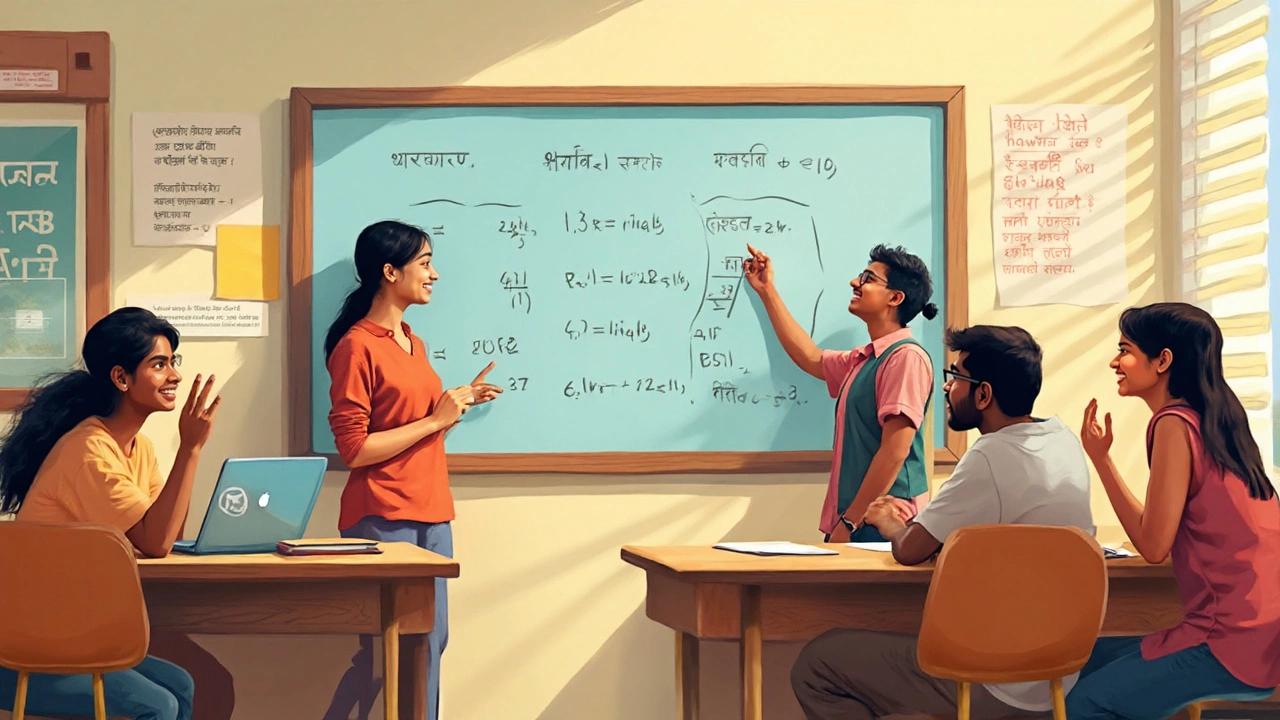You hear wild stories—kids who start studying for IIT as soon as they can write, others who magically get into an IIT with just two years of prep. But let’s get real for a second. The idea of cracking the IIT JEE, one of India’s toughest entrance exams, in just two years sounds almost like a dare. But is it actually doable? Or is this one of those unicorn success tales? What separates the achievers from the dreamers when the clock is ticking and pressure is sky-high?
What It Actually Takes: The 2-Year Game Plan Unpacked
Okay, so first off, the basics. Cracking IIT JEE in two years means you’ll start serious prep at the beginning of Class 11 and stick with it until the end of Class 12. You get about 24 months, but it’s not just about time—it’s about how you use it. You need to cover a mountain of Physics, Chemistry and Math—and not just from your school textbooks, but the kind of detailed, trippy stuff you find in H.C. Verma, Morrison & Boyd, and Cengage. The reality? Two years is intense but enough, if you stick to a super focused plan.
Let’s look at how most successful two-year aspirants do it. First, they split the syllabus almost evenly across four phases: basics, deep-dive, relentless practice, and mock tests and revision. For example:
- Class 11 (Months 1–8): Build basics for all three subjects. Get comfortable with concepts—not just mugging, but understanding why things work.
- Class 11 (Months 9–12): Start practicing past JEE questions, concept applications, and make detailed notes. Lots of students keep notebooks just to jot down tricky questions and where they got stuck.
- Class 12 (Months 13–18): Tackle Class 12 syllabus, but keep revising Class 11. Don’t drop old topics—JEE is notorious for mixing them up in questions.
- Class 12 (Months 19–24): All about mock tests, revision and time management. Here’s where students start simulating real exam sessions and smashing through at least 30–40 full-length papers.
It’s not a one-size-fits-all approach. But almost every IITian I’ve chatted with shared how they had to “own” their prep—make it personal, adapt when stuck, and get creative about filling in learning gaps (hello, YouTube explainers at 2 am).
| Key Area | Time Allocation | Resources/Tools |
|---|---|---|
| Conceptual Learning | 30–35% | NCERT, H.C. Verma, Morrison & Boyd |
| Problem Solving | 25–30% | Previous year papers, Cengage/Resnick Halliday |
| Testing & Revision | 20–25% | Mock tests, self-made notes, online platforms |
| Doubt Clearing | 10–15% | Coaching, peers, YouTube |
If you’re thinking, “That’s all well and good, but is it practical?”—here’s something to chew on. According to a 2024 Byju’s survey, around 67% of students who cracked JEE (Advanced), did so with 2 years or less of focused prep. They didn’t all have genius-level IQ. What they had was a strict routine, focused notes (some even color-coded for fun), and weekly test plans.

The Myths (and Brutal Truths) About Cracking IIT in 2 Years
Now, let’s bust some myths. You don’t need to study 15 hours a day. Binge-studying works only until your brain crashes. Real winners block out 5–7 hours a day but do it smartly—staggering easy and tough topics, using pomodoro timers, and taking care of their mental health (yes, that counts). A study from FIITJEE in 2023 showed that the sweet spot was actually around 6–7 hours daily, with short breaks every hour.
Another myth? Only “topper” types make it. Wrong. Listening to 2024 All India Rank 71, Rishi from Surat, what stood out wasn’t some jaw-dropping IQ—it was consistency. He didn’t skip Physics because he hated it. He tackled tough chemistry problems when he was half-asleep because he knew skipping would cost him later. Don’t be fooled by flashy social media posts—it isn’t about being the smartest in the room; it’s about showing up, every day.
Coaching is helpful, but it’s not magic, either. Loads of students get so bogged down by chasing “the best” coaching, hopping from one institute to the next, that they burn out. Coaching can help structure your study plan, but it’s your hours outside those classrooms—solving papers, reviewing errors, figuring out why you messed up a calculus question for the tenth time—that really builds your skills.
Let’s talk about another pitfall: comparing yourself to others. It’s easy to feel like you’re falling behind when everyone else seems to “get it” faster. But everyone plateaus at some point or hits a subject wall. Don’t take this as failure. Even the most celebrated IITians had chapters or topics that took them weeks to master (hello, organic chemistry!).
Mistakes are part of the process. In fact, they’re crucial. If you’re not making dumb errors during practice, you’re probably playing too safe. Every error, every wrong answer, is another step closer to getting it right in the actual exam. Start celebrating those “fails” in your daily prep—that’s how real progress feels.
Lastly, people think you have to sacrifice every fun thing—no movies, no sports. But those who made it swear by keeping a couple of hours a week for things that make them happy. It keeps motivation real and burnout at bay.

Roadmap, Resources, and Relatable Strategies: Building Your Own 2-Year Success Plan
So, what does a real, not just theoretical, two-year plan look like if you want to crack IIT in 2 years? First, get organized. Print out the complete JEE syllabus and pin it where you can see it every day. Set monthly and weekly targets—not just broad goals (“Finish Class 11 Physics!”) but micro-goals (“Understand rotational motion by Sunday”). Break big tasks into small chunks. Keep a tracker or use Google Sheets—whatever helps your brain make sense of the mountain you’re climbing.
Invest in the right books. Most successful students agree that NCERTs are non-negotiable for theory (especially for Chemistry). H.C. Verma is almost a rite of passage for Physics. For maths, try “Cengage” or “Arihant” series—they have lots of solved and unsolved problems, and the level matches JEE pretty closely.
Find your learning style. Maybe you grasp more by watching videos than by reading. There are tons of free lessons on YouTube—channels like Arvind Kalia, Mohit Tyagi, and Organic Chemistry Tutor. Try mixing textbook learning with video lessons to break the monotony. Don’t hesitate to ask questions in comment sections or peer groups. The feedback loop is gold.
Set up weekly mock tests. Don’t just stick to the big coaching institute tests—seek out lesser-known sources, like Allen’s past year papers or even regional coaching papers, to get a variety of question styles. Analyze every single test. Why did you lose marks? Was it a silly error or a weak concept? Fix it now, not after twenty more tests.
During the last 6 months, your focus has to shift from learning to perfecting. Mix full-length mock exams with single-topic timed quizzes. Try solving papers with distractions around, because JEE halls are rarely pin-drop silent. Learn to manage stress and time alongside concepts and formulas.
Here are some hands-on strategies:
- Batch your difficult topics. Dedicate fresh morning hours for the toughest chapters.
- Make error logs. Write down every mistake you make during practice. Go back and revisit these regularly.
- Study buddy system. Pair up with someone, not for competition, but for company, mutual motivation, and to share notes.
- Manage downtime. Use breaks to go for walks, play sports, or watch your favorite sitcom—real breaks help sharpen focus.
- Plan review days. Every two weeks, dedicate a half-day to revisiting past topics, notes, and question banks.
Let’s not sugarcoat anything—you’ll feel overwhelmed at times. But most students who crack it in two years say the exact same thing: stick at it. Don’t panic if you fall behind for a week, just get back on track. Take real rest, not “scrolling Instagram” rest—one power nap will do more for your brain than a hundred memes.
Here’s a look at numbers to give you perspective:
| Year | Number of JEE Advanced Registrations | Seats in IITs | Percentage Selected |
|---|---|---|---|
| 2022 | 1,56,089 | 16,232 | 10.4% |
| 2023 | 1,80,372 | 17,489 | 9.7% |
| 2024 | 1,94,456 | 18,132 | 9.3% |
Around one in ten makes it. But nobody is born knowing JEE material. If you use your two years smartly, stay consistent, use the right resources, and actually review your mistakes—not just keep solving question after question—you give yourself the best shot. And who knows? Maybe two years from now, you’ll be the one telling your own story of how you cracked IIT JEE in two years, turning what seemed like a dare into your personal success story.








